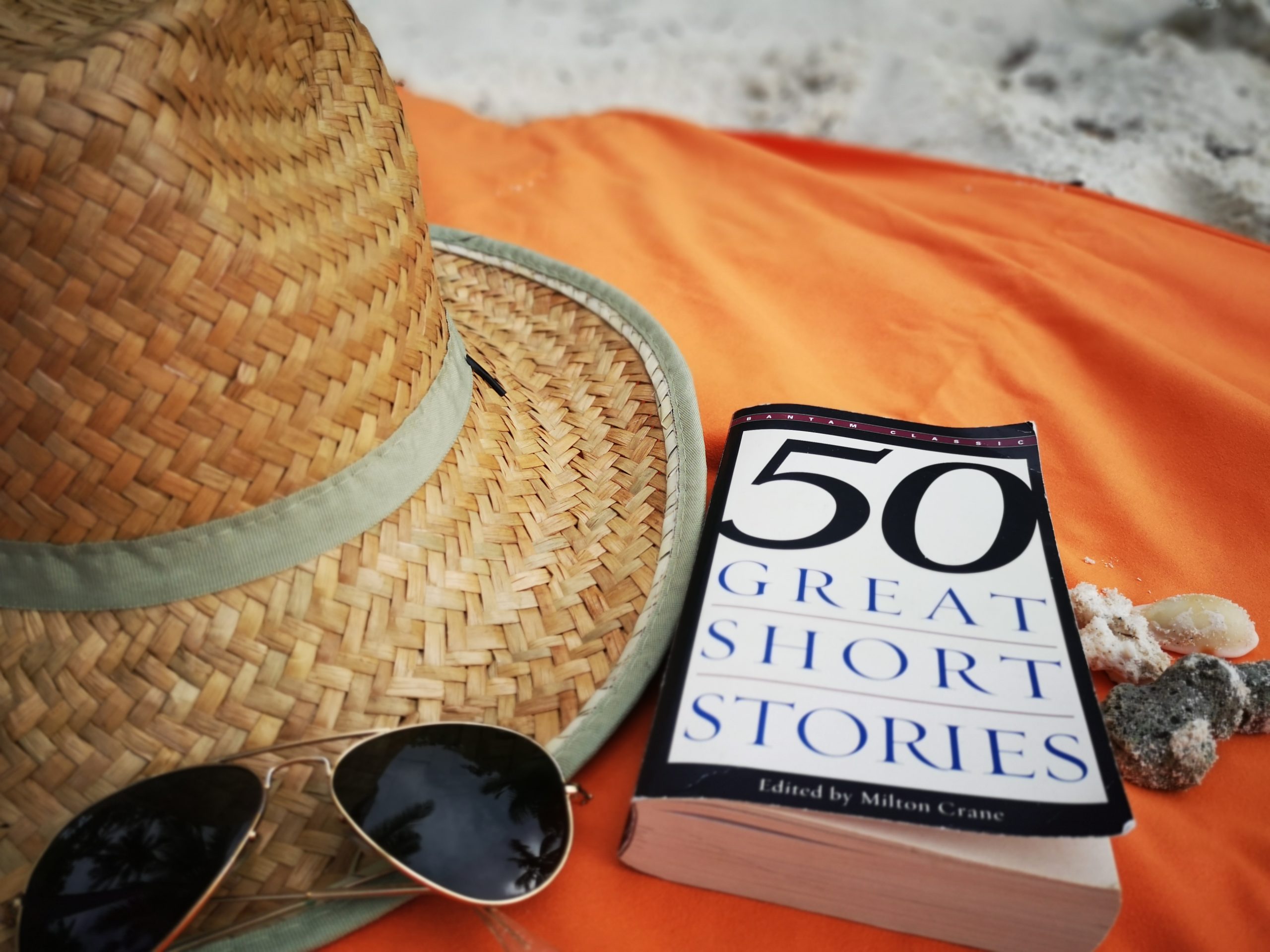We had been planning a diving trip to the Maldives for half a year and it took us a whole day of travel to arrive on Filitheyo, the island of our choice. A ten-hour flight from Munich to Male, with a layover in Dubai, followed by another hour in the deafening noise of the seaplane that took us to the island. But it was worth it; paradise was there, waiting for us. The first two days were lazy; we wandered from right to left, sat at restaurants, bars, by the pool, and even in the library for a bit. The world was no more; it was just us in the middle of the ocean. But if the island gave me the feeling of “world no more”, reading the 50 Great Short Stories in the 1952 collection edited by Milton Crane brought the world back to me and me back to the world.
Asking what makes a short story great is a cliché in the meantime, but I can’t help wondering. One thing I’ve noticed is that what was “great” in 1952 is not necessarily so in 2023. Certain titles have withstood the test of changing readership and it’s almost certain they will withstand the test of future readership as well, while others not so much. I haven’t particularly enjoyed titles such as E.M. Forster’s ‘The Other Side of the Hedge’ (1911) or Arthur Schnitzler’s ‘The Death of the Bachelor’ (1908) so much and for different reasons. The first one is that kind of short story which is meant to work as a metaphor and reveal in too obvious a way something deep about our life, while the second plays on clichés which might have been intriguing 70 years ago, but today just feel dusty and outdated. I’m not gonna waste too many words on what I didn’t like. Let’s best have a look at my top 3 short stories of the collection.
Henry James – ‘Brooksmith’ (1891)
Before discovering Mavis Gallant, I thought Henry James was the master of the short story. Gallant borrows a lot from James though. They both write heavy, atmospheric prose which requires re-reading and they both write lifelike characters in the lives of whom you get invested as you read. Henry James’ ‘Brooksmith’ is such a story. I remember perfectly I read it on a clear afternoon, after a morning dive and a lunch of vegeterian curry. We planned to bathe in the sun and read for a couple of hours, but while my husband was making serious progress with Frank Herbert’s The Children of Dune, all I did was read James’ short story twice.
The story has a rather unexciting narrative thread. Brooksmith is a butler employed by Mr. Offord and a friendship of sorts develops between him and the narrator. When Mr. Offord dies, Brooksmith has a hard time finding new employment and the narrator, even though himself a gentleman of society, can’t do much to help. Like I said, unexciting. But James’ genius doesn’t lie in “what happens” but in suggesting nuances and complexities of situation and character. In ‘Brooksmith’ James brings us closer to one of the strict rules of Victorian high society – social classes can’t mix. Brooksmith is a central figure, not only for his impeccable service, but also for the genuine connections he helps forge between the members of high society. He functions as a liaison for lively salon atmosphere and conversation, but, except for the narrator, nobody is willing to give him credit for it. He does heavy lifting and yet he remains and must remain invisible to those he serves.
Katherine Mansfield – ‘The Garden Party’ (1922)
Despite FIlitheyo’s small size, it has an incredible reef. Even at the shore, at a depth of 1m, I saw schools of colourful little fish, but life truly began at the reef, where the wall drops to 30m. At 2-3m below the surface, there were sea turtles, vibrantly colored fish, harmless sharks, and stingrays. As we descended, the landscape changed, colors lost their intensity, but I witnessed the true underwater world: corals like petrified forests, lionfish, tiny shrimps, morays, and giant clams. The Maldivian azure depths have a lot to offer, but probably nothing is scarier and more attractive than the sharks, which, on a night diving adventure, really give you thrills.
“It was simply marvellous”, Laurie sobbingly tells her brother at the end of Katherine Mansfield‘s landmark Modernist short story ‘The Garden Party’. After visiting a family with limited material conditions, the young girl had just had her first encounter with death. Death and poverty throw Laurie well out of her comfort zone and force her to come to terms with a facet of life she had previously been unaware of. I had to think of Mansfield’s story after my night-time shark encounter. I felt like I was not supposed to be there, like I was trespassing, while at the same time unable to keep my eyes off the shark which was swimming back into the blackness of the water, untouched by the light of our torches. Like Laurie, I went back to my dry, comfortable world, with an awareness that dark things lurk out in the black, and I just stepped away from them.
Flannery O’Connor – ‘A Good Man is Hard to Find’ (1953)
Of the three authors whose short stories I most enjoyed, it is Flannery O’Connor that I am the least familiar with. I first heard her name this summer in a conversation on 20th century women writers, when I learned she writes in a genre called southern gothic. I was happy to find one of her best-known short stories in my collection and still baffled by it. The story is bloody, dramatic and strangely funny. It begins as the old grandma joins her son, his wife and their two children on a family vacation. She is set on visiting an old farm she remembers from her youth, but it slowly becomes apparent that her memories might be a bit jumbled. As they encounter a band of criminals on their journey, the grandma’s past takes a life of its own, but, then again, everything could just be a terrible misunderstanding which just ends badly. I love the stories where memory and past play a big role, but the combination of comic and tragedy which marks O’Connor’s story is something new for me.
dream and reality
In Maldives turquoise waters blend seamlessly with the endless horizon. Colourful coral reefs are teeming with life. The tropical breeze blows hot on my skin. The Maldives are paradise on Earth, no less, and an amateur diver and avid reader like me could not have chosen a better destination for a fall off the face of the Earth. Diving and reading shaped my days into mirrors of the rise and fall of the ocean levels, but, in the end, neither let me completely forget my life and my world.












your thoughts?